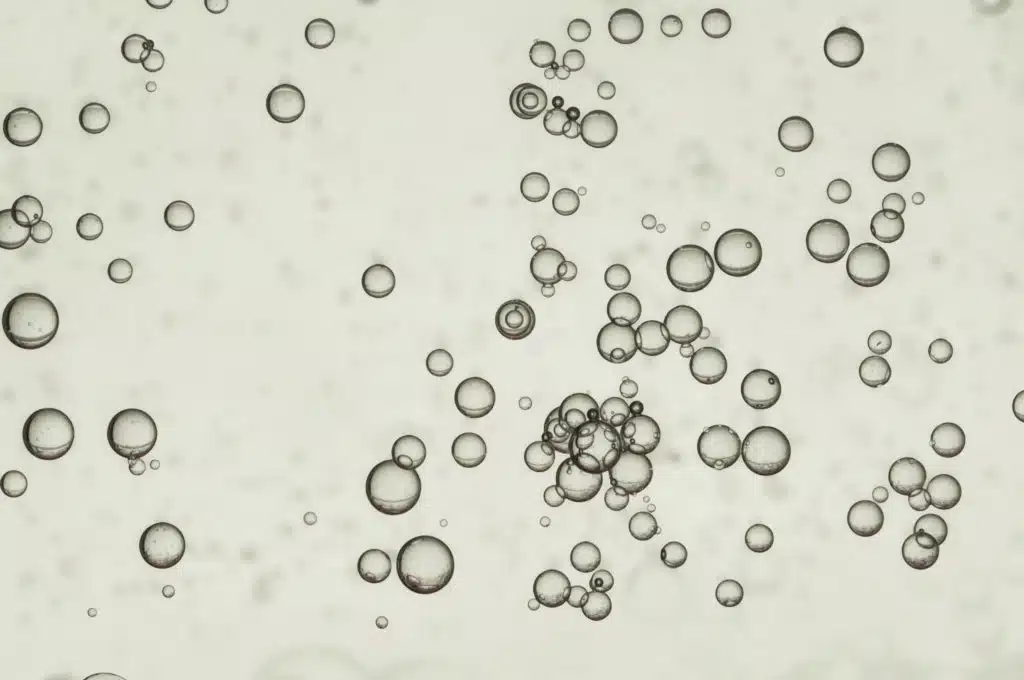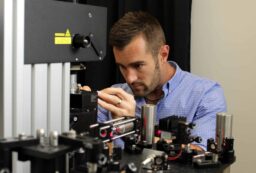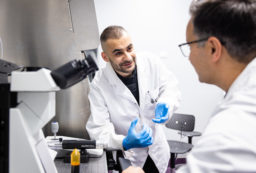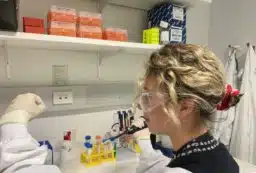Bacteria “talk” using chemical signals to prepare their attack on humans, animals and plants. Could a chemical from seaweed disrupt their conversation and stop the invasion?
A NSW research team has discovered a chemical (halogenated furanone) from seaweed that alters bacterial behaviour by blocking their chemical “conversations”.
Mike Manefield, a member of the team, believes their discovery has applications in medicine, agriculture, industry and even the domestic environment.
“We know many bacteria use chemical signals to gather their troops in stealth attacks on unsuspecting hosts. A classic example is Pseudomonas aeruginosa in cystic fibrosis lung infections. Another is Erwinia carotovora which causes stem rot in economically important crops.”
“These chemicals can also be used to prevent bacterial films growing on submerged surfaces ranging from our teeth to water filters.”
“The halogenated furanones also prevent a disease in prawns called vibriosis, which can wipe out entire yields. We’re currently working on incorporating the chemicals into prawn feed.”
The chemicals are of natural origin and are degradable so there is no concerns releasing them into the environment because they are already out there and they don’t accumulate.
They have no toxic effects on mammals and can be produced synthetically, so they can be made in abundance for any number of applications.
“There is potential for these chemicals to succeed the antibiotic. They are a new generation of smarter molecules to use in our battle to control bacterial activities” said Mike Manefield.





 Fresh Science is on hold for 2022. We will be back in 2023.
Fresh Science is on hold for 2022. We will be back in 2023.